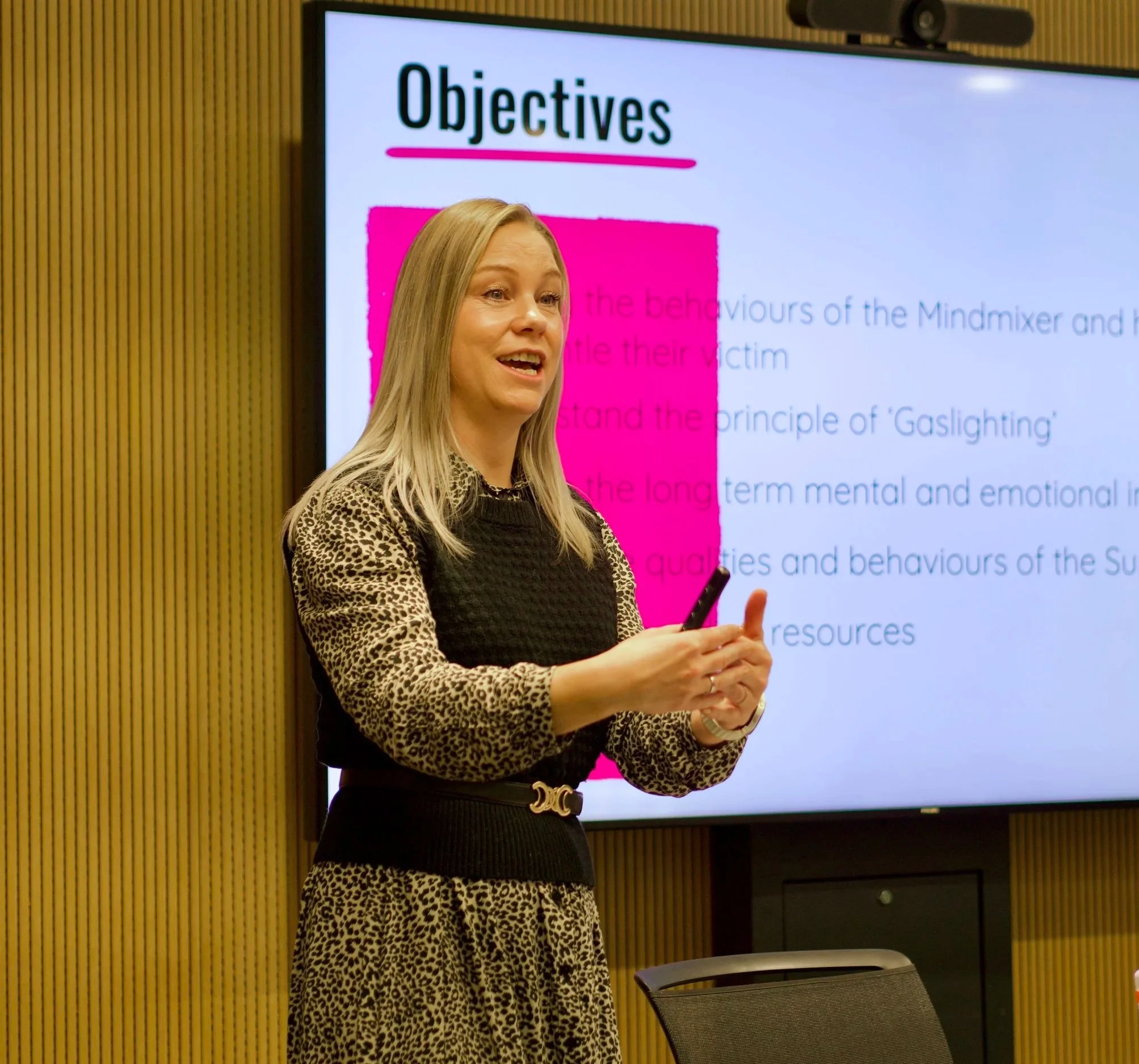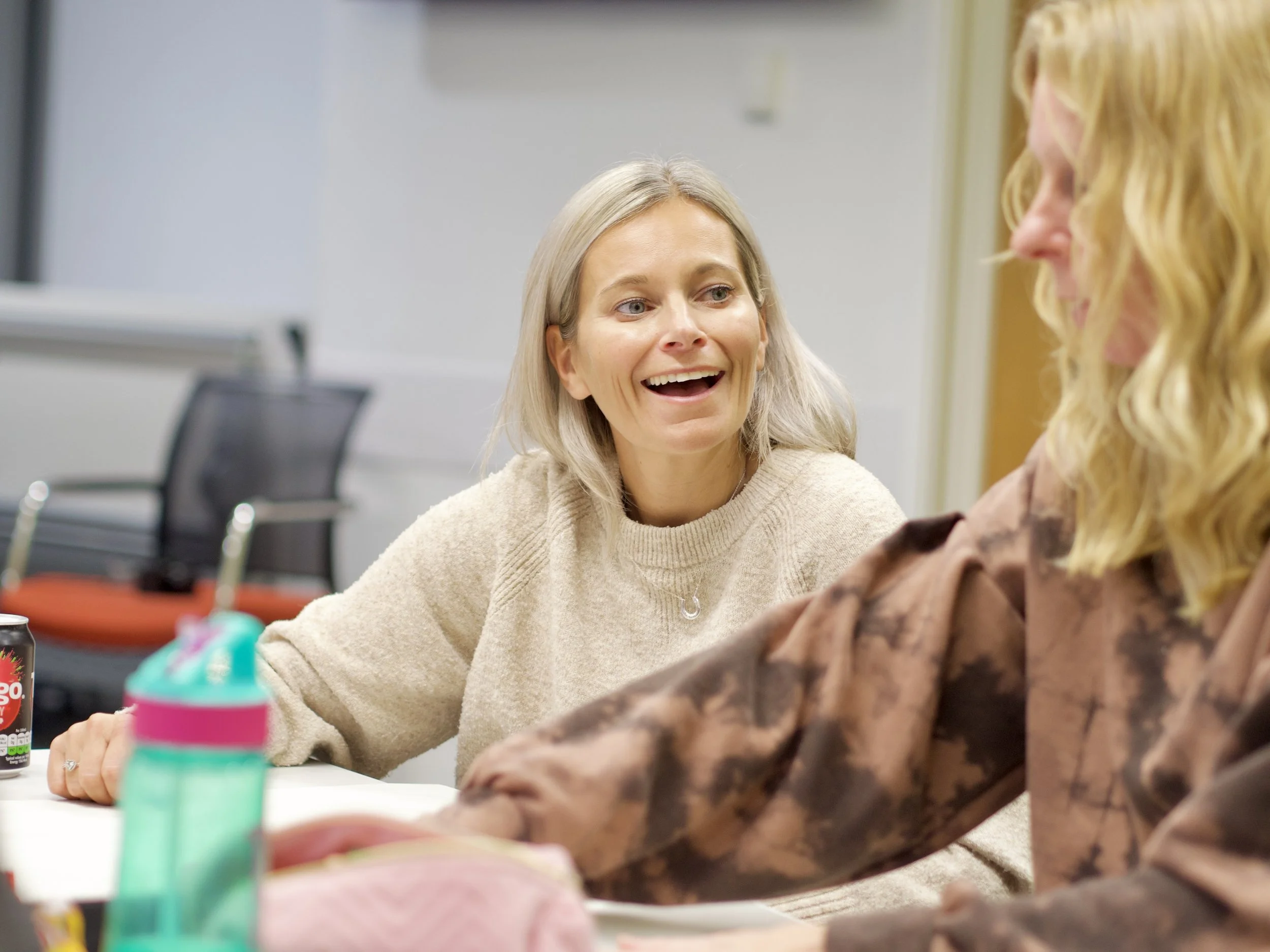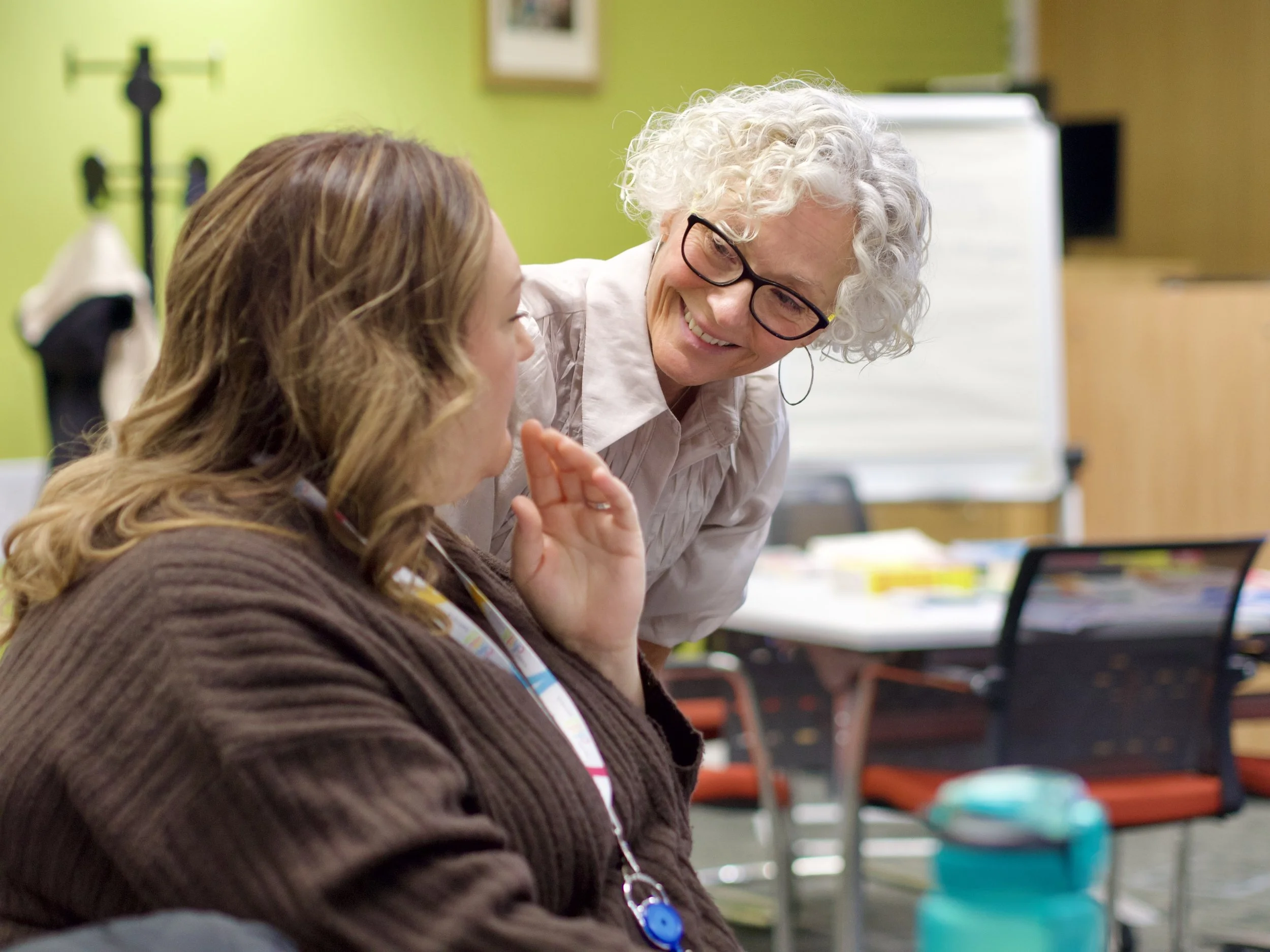Victims Of Intimate Coercive Experience
The VOICE Programme
A 12-week domestic abuse programme for adults addressing domestic violence & abuse, coercive control and the impact of such significant traumatic experiences within a therapeutic framework.
The Basics
-
The VOICE Programme is for any victim or survivor of intimate coercive experience and domestic abuse, whether in-situ, post separation or historical, no matter how they identify in terms of their gender, sexuality, race, faith, culture, disability or any other identifiable difference.
It supports victims and survivors to identify the broad spectrum of abusive behaviours, the process of dismantling that a victim goes through, and the significant impact of such traumatic experiences within a therapeutic framework.
-
Practitioners attending training come from a range of statutory and voluntary agencies including domestic abuse services, WA refuges & outreach, housing associations & housing providers, health, CYP services, counselling & therapeutic services, IDVA services, SARCs, prison services, and social workers.
-
The structure of the programme consists of twelve 2.5 hour sessions. The programme is part-therapeutic/part-knowledge based using a combination of discussion, exercises, self-reflection and research. The core elements of the programme address:
Week 1 - Introductions: Introduces the Controller, introducing the concept of grounding resources and self-care within the therapeutic framework
Week 2 - Understanding Trauma: The impact of traumatic experiences and the introduction of Mind/Body connection
Week 3 - The Charmer: Recognises coercion, love bombing, stalking and the introduction of grounding resources
Week 4 - The Bully: Explores the many behaviours of the bully, the specific psychological and physiological impacts and relevant grounding resources
Week 5 - The Abusive Parent: In situ & post-separation, exploring DARVO, court process, parental alienation and the impact on parenting
Week 6 - The Mindmixer: Examines the gaslighting, emotional and psychological dismantling of the victim, with supporting self-regulation exercises
Week 7 - Trauma and Traumatic Triggers: Explores emotions, feelings, the brain, stress response and unconscious triggers
Week 8 - The Taker: Explores coercion, consent, technology and social media, the emotional and physiological response to sexually abusive behaviour and relevant grounding resources
Week 9 - The Homewrecker: Explores domestic and economic abuse both in situ and post-separation, with grounding and self-care resources
Week 10 - The Keeper: Develops insights for both in situ and post-separation on isolation and loss of liberty, the impact of digital tech, emotional impact, and reclaiming a sense of hope and oneself
Week 11 - Boundaries: Explores boundaries, what they do, how they help you, and how to create them
Week 12 - Moving On: Explores change, aspirations, goals, qualities, strengths, and hope for the future
-
Exploring the broad range of behaviours of a controlling partner both in-situ and post-separation
Themes of intersectionality and the additional barriers this presents to victims & survivors
Exploring of the part therapeutic/part knowledge-based approach
How to generate learning in a supportive, regulated, and trauma-informed framework
Relatable psychoeducation on trauma and normal stress responses
Enabling victims and survivors to learn more about the impact of traumatic experiences
How victims and survivors can build capacity for self-regulation and commitment to self-care
How to support different learning styles with the use of discussion, self-reflective exercises, visual media, and active participation
Deepening self-reflection with the interactive and experiential activities
Facilitation skills and practical application of programme delivery
How to run this programme flexibly in groups as well as apply the learning 1:1
Discussion, completion of self-reflective exercises and practice of the self-regulation resources
Exploring the materials throughout the 12 weeks
Active Practice sessions, giving delegates the opportunity to use the tools, resources, and materials with guidance & support
An experiential journey familiarising you with the themes for each week
Three Day Facilitator Training
The three-day training will encourage and support delegates to fully embrace the part-knowledge and part-therapeutic approach of the VOICE Programme woven into each of the twelve weeks. Training is designed to meet the need for greater understanding, giving practitioners the best opportunity to support the victims and survivors with whom they work in a supportive and regulated way using a trauma-informed framework and approach.
You will have an experiential journey familiarising you with the themes for each week, including discussion, completion of self-reflective exercises, practice of the self-regulation resources, and exploration of the facilitator manual and materials throughout the programme.
Under the umbrella of ‘the Controller’, you will explore each character, identifying behaviours both pre- and post-separation, traumatic experiences, and how this impacts the victim, alongside key grounding resources and self-care specific to each character of the Controller.
-
An experiential journey through Weeks 1-4 covering: an insight into the context, prevalence, and data relating to coercive, controlling, and abusive behaviours in adult intimate relationships; overview of The Controller; insights into intersectionality and the therapeutic framework of VOICE; introduction to Understanding Trauma and the practice of grounding resources; exploration and impact of The Charmer and The Bully.
-
Covering Weeks 5-8 of the programme: exploration and impact of The Abusive Parent, The Mindmixer and The Taker in situ and post-separation; further insights into Trauma & Traumatic Triggers; guilt and shame; understanding the triune brain in trauma; encouraging the use of the self-reflective exercises to develop insights, deepen awareness, and support somatic attunement.
-
Covering Weeks 9-12 of the programme: exploration and impact of The Homewrecker and The Keeper; active practice of facilitation to support confidence in delivery; exploring Boundaries and how to set them; barriers to aspiration; Moving On and setting intentions; commitment to self and hope; evaluation and feedback.
On successful completion of the three-day facilitator training, participants will be eligible to run the VOICE Programme and will have access to a Private Area on the Awareness Matters website. Here they can download all the materials needed to run the twelve-week programme. There are no further license fees, enabling practitioners to run programmes immediately. It is expected that where possible newly trained facilitators take the opportunity to co-facilitate.
Upcoming Training
21st, 22nd and 24th April 2026
Delivered online via Zoom
Cost for the online training will be £850 (plus V.A.T.) per person, including the course handouts and access to all the programme materials needed to run the VOICE Programme.
It is recommended that practitioners have completed domestic and sexual violence and abuse training and have some experience working with clients and those who are/have experienced domestic abuse or teenage relationship abuse. All practitioners must have completed recognised safeguarding training.
The Rationale
The VOICE Programme was developed mindfully by professionals with three decades of experience managing outreach and therapeutic services in the domestic abuse arena. After twenty years of delivering training to practitioners to run domestic abuse programmes, we had a growing frustration that victims and survivors needed something more meaningful to support and promote recovery, well-being and hope.
Having worked in clinical and therapeutic services with thousands of victims and survivors, it was our experience that most are living with the symptoms of complex trauma but their symptoms and the impact on behaviour tend to be pathologised as mental health disorders and conditions such as bi-polar, depression, generalised anxiety disorder, borderline personality disorder and PTSD. The diagnosis of disorders consistently suggested that there is something wrong with the victim or survivor, and largely ignored that there was something very wrong with the situation they were in and had to survive. Such labels can imply that there is no hope of recovery.
It is widely understood that trauma is not held in the brain but somatically in the body. Partly because our cognitive functioning is interrupted when in fight or flight. As Dr Van Der Kolk says: “the frontal lobe, the part of your brain that helps you put your feelings into words, actually goes offline”.
Yet so many approaches with victims and survivors work cognitively, appealing to the thinking brain, to promote change. Consequently, this places victims and survivors in the position of understanding their experiences theoretically but not feeling sustainably better in the long term. The overwhelming trauma experienced is still held somatically in their system. However, this can inadvertently leave victims and survivors feeling as if they can’t recover, hopeless about the future and as if they are taking backward steps when they become triggered or overwhelmed. Put simply, if it were that simple to think everything through cognitively when we are traumatically triggered, we would all be well and none of us would need any support services at all.
It is our belief that, if we can support victims and survivors to make the insightful connections between experience and impact, they can understand that their responses were ‘normal’ given the challenging and difficult circumstances they faced. That they might not be mentally ill but suffering the impact of their traumatic experiences. If we can provide psychoeducation, those victims and survivors we support can learn to make these connections and thus find hope for recovery.
The VOICE Programme draws on the Sensorimotor Psychotherapy model for trauma and attachment, which takes a holistic approach including somatic, emotional and cognitive processing and integration, and is leading the way internationally in the trauma arena.
We have developed the VOICE Programme to support insight and understanding into the emotional and psychological devastation experienced due to living with persistent coercive, controlling and abusive behaviours. We gradually introduce psychoeducation, learning about trauma and the traumatic triggers that push a victim or survivor into dysregulation and overwhelm. This is achieved through a series of building blocks across each week of the programme, offering resources designed to support self-regulation and containment, thus enabling those we work with to take more control of the way they feel and function, and developing personal agency.
The programme is interactive and draws on a variety of different learning styles using discussion, self-reflective exercises, visual media and active participation to generate learning for all participants. This programme can be run successfully online or face-to-face, in groups or one-to-one where needed.








